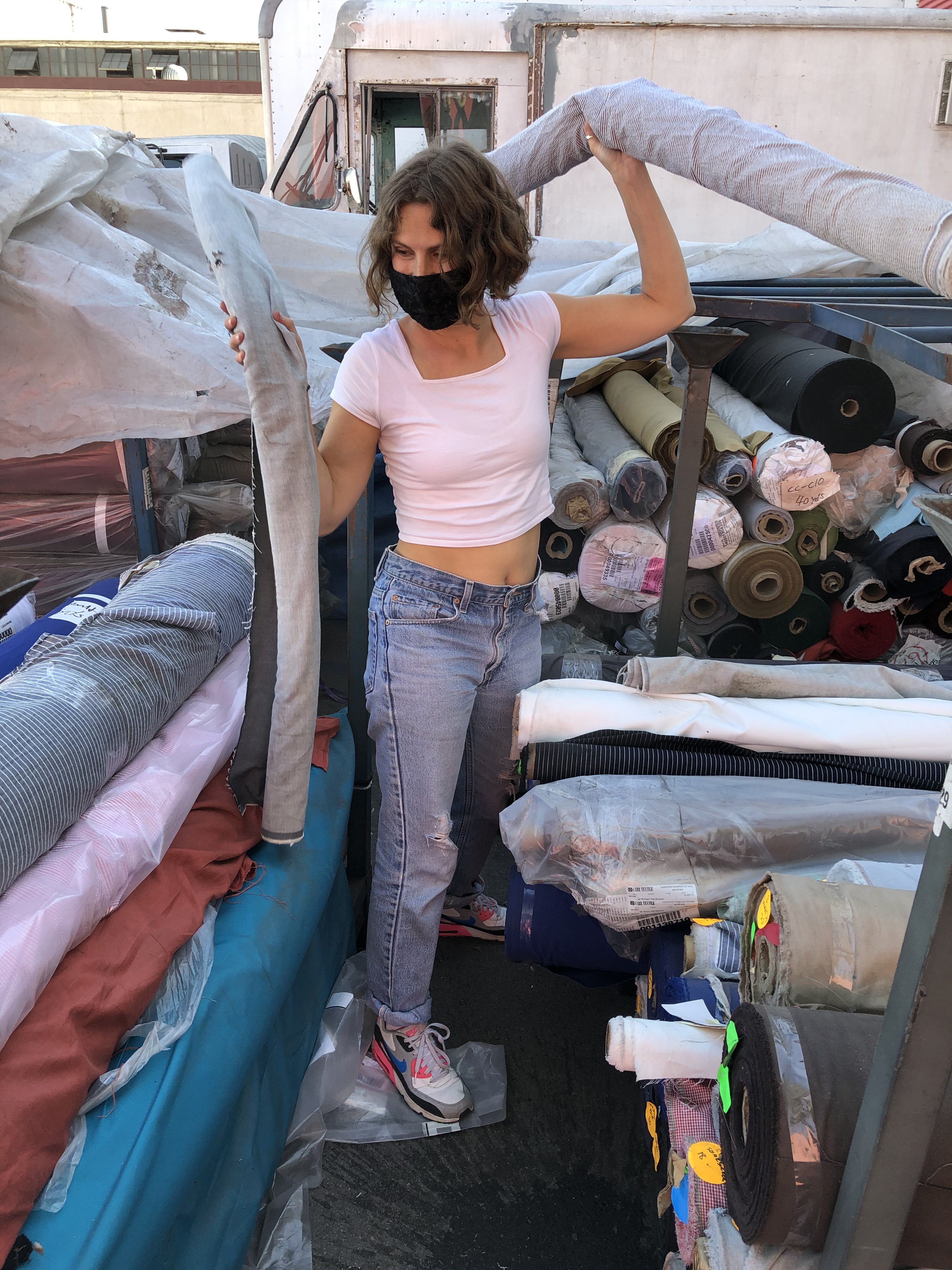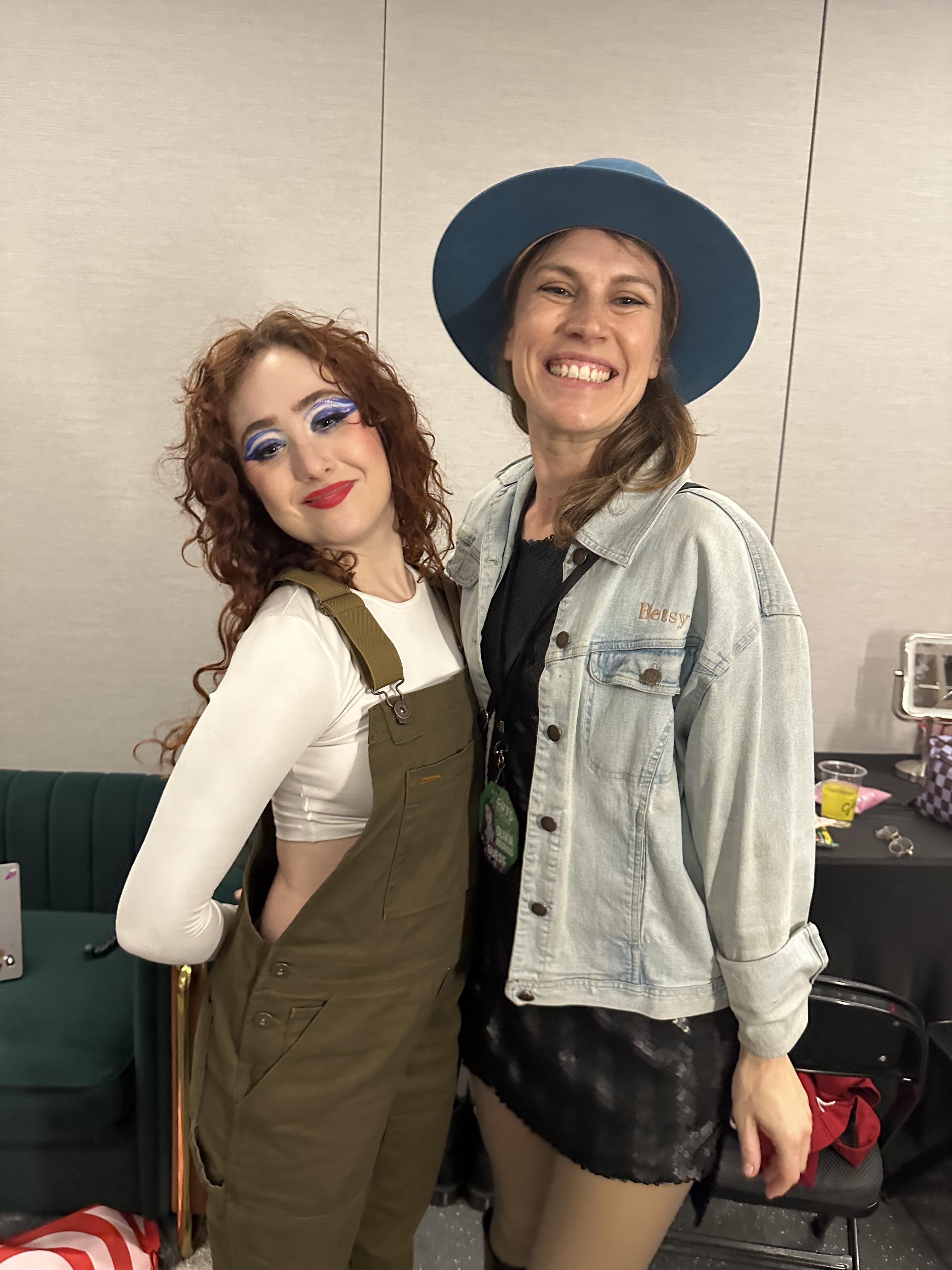Alumna Jillian Clark ’08 is using her Bachelor’s Degree with Individual Concentration (BDIC) to tackle the textile waste crisis.
When Jillian Clark ’08 enrolled at UMass Amherst, she dreamed of a future in dance. But it was the creative freedom of the Bachelor’s Degree with Individual Concentration (BDIC) program that helped set her on a different path.
Now, as the founder and CEO of Roboro, Clark leads the only U.S.-based company building scalable, end-to-end solutions for the textile waste crisis.
Though Clark began her undergraduate studies as a ballet dancer, she eventually found her way to BDIC through a History of Fashion class taught by theater Professor Emerita Pat Warner.
“What I loved about this class wasn’t necessarily the clothing itself, but that you could tell what was going on in the state of the world based on what people were wearing,” Clark says. “Was it a time of famine? Was it a time of war? What’s going on politically? That anthropological study really interested me.”
At Warner’s suggestion, Clark explored costume design and theater, soaking up all she could through hands-on experiences and a self-guided internship.
Though Clark considered switching her major to theater, she realized she was craving a broader understanding of how art, fashion, and society influence one another. So, she decided to blend courses from each of her interests to create her Design for Theatre and Dance major through BDIC.
I wanted something that would let me create a new lens to look at live performance. BDIC allowed me to trust myself even at 18, 19.
Jillian Clark ’08, Founder and CEO of Roboro
After graduation, Clark spent some time with the prestigious Boston Ballet before heading to Los Angeles, where she began working in costume design for Hollywood films and television.
Yet Clark found herself disillusioned with the industry, a feeling only amplified when she watched the documentary “The True Cost,” which highlighted the devastating impact of fast fashion.
“Not only had I not known about it, but as a costume designer, I was one of the biggest consumers of fast fashion. So, I was part of the problem,” she says. “That was my light bulb moment.”
To better align her work in Hollywood with her values, Clark created MeWe Clothing Brand, which eventually became Roboro, an upcycling apparel company that aims to keep textile waste out of landfills.


Since then, Roboro has grown into a national leader in sustainable fashion solutions. Through its Denim Repair Lab, damaged garments get a second life for consumers. During the COVID-19 pandemic, the company even created much-needed face masks for frontline medical staff.
One particularly memorable moment for Roboro came in 2022 when Clark was asked to style Charlotte Sanchez, the line producer of an animated documentary called “Flee,” for the Oscars. Sanchez walked the red carpet in a fully upcycled gown created by Roboro.
“That was a full-circle moment for me,” Clark says. “I’d wanted to go to the Oscars for my work, and having a Roboro gown on the red carpet for an impactful documentary about refugees meant a lot.”
Later, in 2024, Roboro partnered with Grammy-winning artist Chappell Roan to redesign her popular “Midwest Princess” trucker hat, transitioning it from 100 percent polyester to a more sustainable cotton-poly blend. The collaboration took on even greater significance when the Kamala Harris/Tim Waltz presidential campaign released a merch hat inspired by the very same hat Clark had helped resource.
“The huge global impact of that small moment was something I was incredibly proud to be a part of,” Clark says.
Today, Roboro’s impact extends well beyond clothing.
“The idea behind Roboro is a philosophy that we can reinforce and strengthen what we already have,” Clark explains. “Roboro can be a verb or an action word. You can Roboro your jeans, you can Roboro your community, you can Roboro your government. There’s power in the fact that we can make things better.”
Now living in Massachusetts, Clark is embracing a new chapter while continuing to grow Roboro’s impact.
She has this advice to offer to those hoping to live more sustainably: “Start small. Sustainability doesn’t just mean eco-friendly. It means that whatever you’re doing can be sustained over time. For me, that’s meant trying to buy less. We can’t solve the textile waste crisis or food waste crisis or fossil fuels crisis without slowing our consumption.”
For current students who are considering the BDIC program, Clark encourages them to trust their instincts.
“You have to trust yourself first and foremost. You know what's going to motivate you, what’s going to drive you,” she says.
“Students who find their way to BDIC are already driven, motivated, and think outside the box. Lean into that.”
Support bold ideas and unconventional paths by making your gift to the Bachelor’s Degree with Independent Concentration program.
- Revolutionize Access



